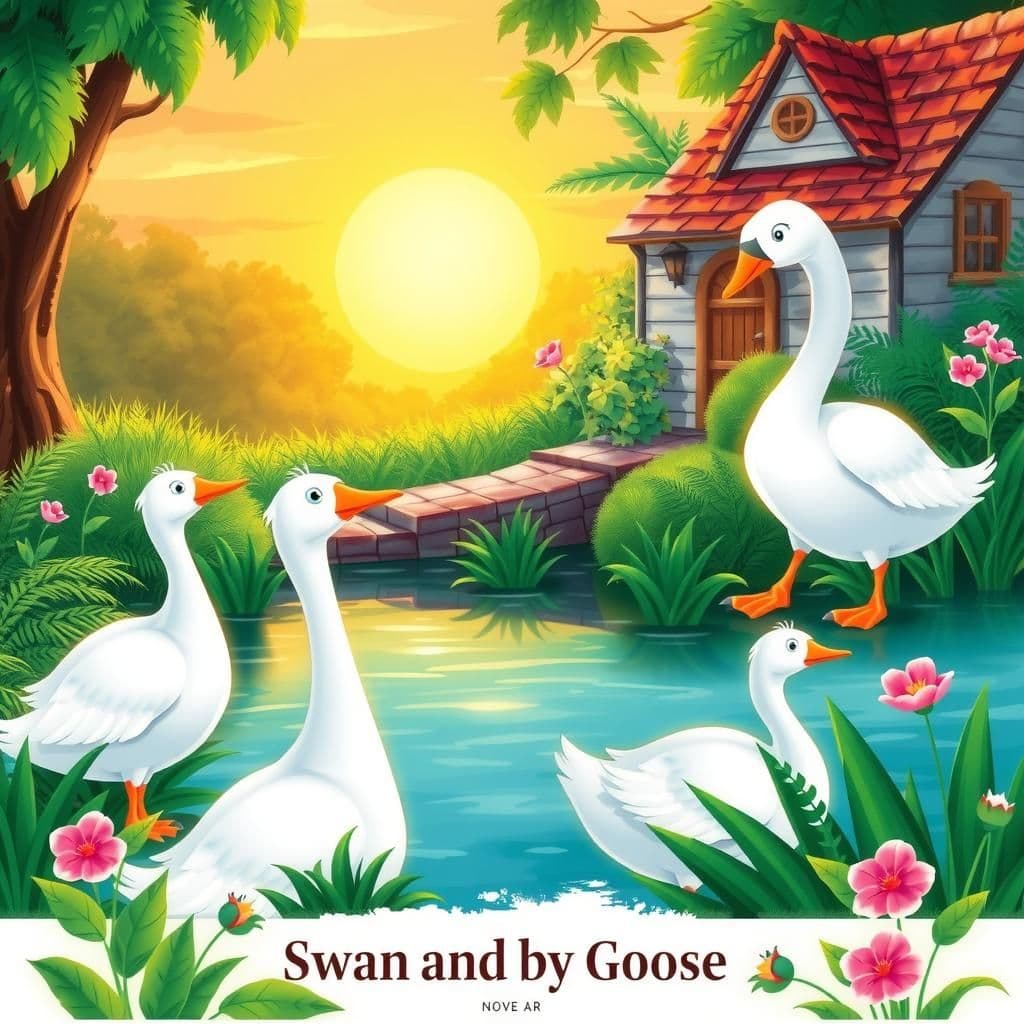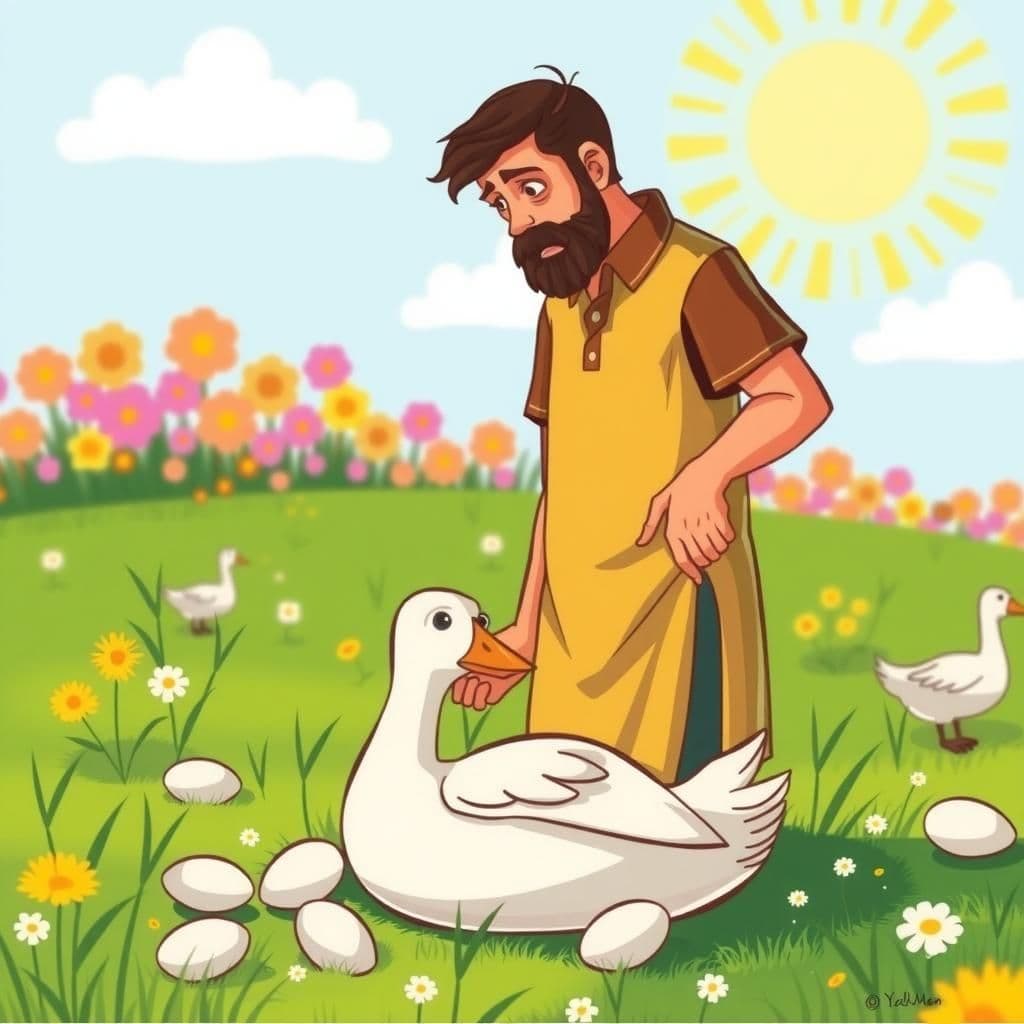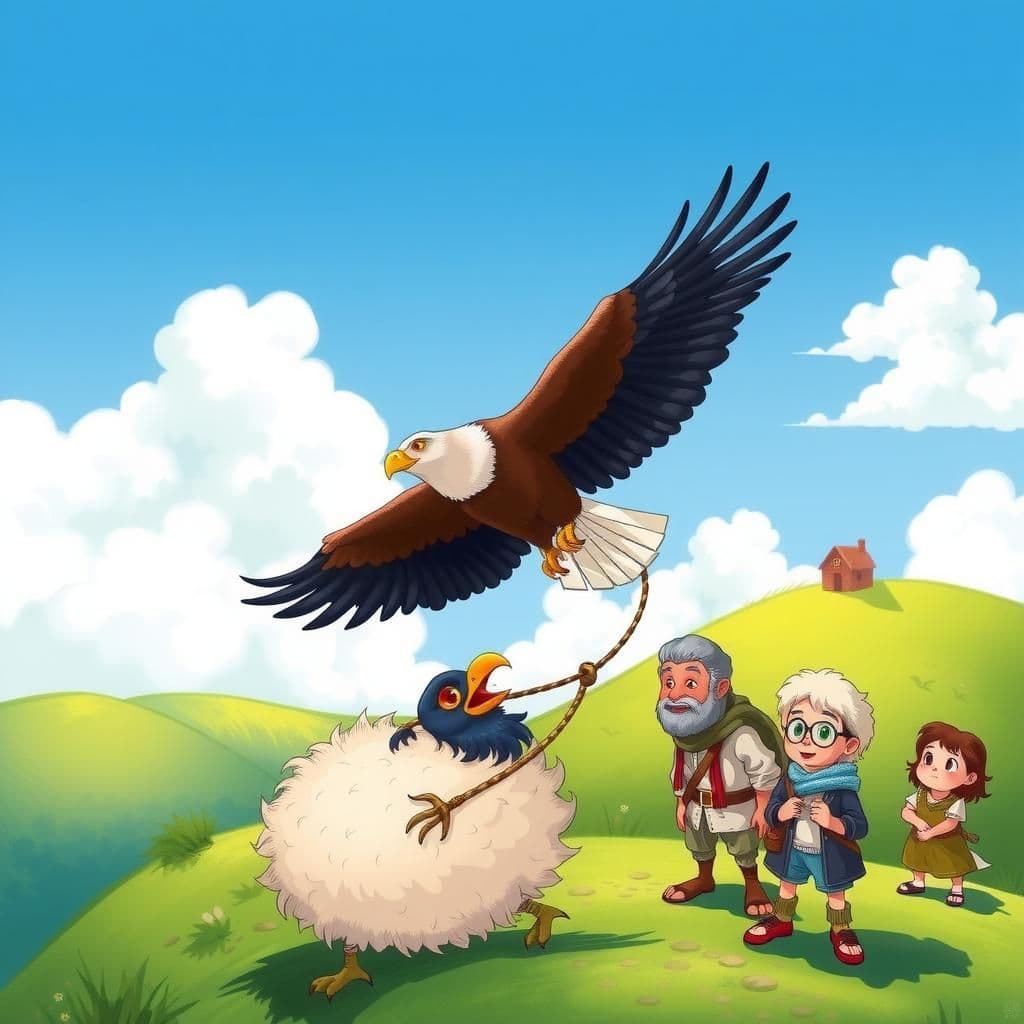The Swan and the Goose
In this famous moral story, a rich man buys a Goose for food and a Swan for its beautiful song. When the cook mistakenly captures the Swan instead of the Goose, the Swan's melodious voice reveals its identity, ultimately saving its life. This short bedtime story teaches valuable lessons about the importance of recognizing true worth and the power of one's unique gifts.

Reveal Moral
"The moral of the story is that one's unique talents and abilities can be crucial for survival in challenging situations."
You May Also Like

The Raven and the Swan
In "The Raven and the Swan," a raven envies the swan's beautiful white feathers and mistakenly believes that washing in water will grant him the same appearance. This simple moral story illustrates that despite his efforts to change his habits, the raven cannot alter his inherent nature, ultimately leading to his demise from starvation. Such short and sweet moral stories remind us that true change comes from within, not from superficial actions.

The Man and his Goose
In this captivating moral story, a man who owned a goose that laid golden eggs became consumed by greed, believing the goose contained a hidden treasure inside. In his haste for wealth, he killed the goose, only to discover she was an ordinary bird and the eggs were no different from regular ones. This entertaining moral tale serves as a valuable lesson for personal growth, illustrating the consequences of impatience and greed in childhood stories with moral lessons.

The Eagle and the Jackdaw
In "The Eagle and the Jackdaw," a Jackdaw, envious of the Eagle's strength, attempts to capture a ram to prove his prowess, only to become ensnared in the fleece. Captured by a shepherd, the Jackdaw learns a valuable lesson: pretending to be something one is not can lead to humiliation. This easy small story imparts a quick moral about the importance of accepting one's true nature rather than envying others.